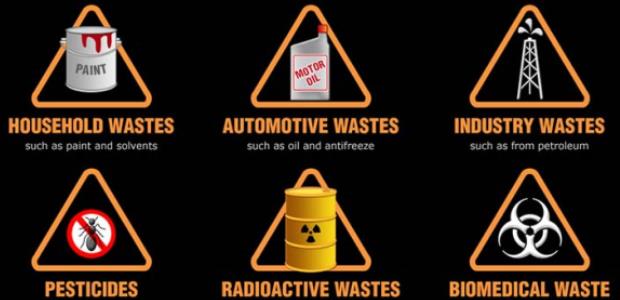
22 Billion Pounds of Chemical Waste Recycled in 2013: EPA
The agency's 2013 Toxics Release Inventory analysis shows this was 84 percent of the toxic chemical waste managed at U.S. industrial facilities that year.
During 2013, as in previous years, most of the toxic chemical waste managed at U.S. industrial facilities was recycled or managed through other preferred practices, according to EPA’s annual Toxics Release Inventory (TRI) report, published Jan. 14. It shows that about 22 billion pounds— 84 percent of the 26 billion pounds of toxic chemical waste were handled in these ways; the remaining 4 billion pounds were disposed of or otherwise released to the environment: 66 percent went to land, 19 percent to air, 5 percent to water, and 10 percent was transferred to other facilities, according to the agency.
It reported the percentage managed as waste by the nation’s industrial facilities increased by 4 percent from 2012 to 2013. This includes the amount of chemicals recycled, treated, and burned for energy recovery, and also the amount disposed of or otherwise released into the environment. In TRI, a "release" generally refers to a chemical that is emitted to the air, water, or placed in some type of land disposal, with most releases subject to regulatory requirements designed to limit human and environmental harm.
"We all have a right to know what toxic chemicals are being used and released into our environment, and what steps companies are taking to reduce their releases to the environment or, better yet, prevent waste from being generated in the first place,” said EPA Administrator Gina McCarthy. “The TRI Program tracks this information and makes it accessible to citizens and communities. And I'm pleased to see that TRI data show such a commitment to release reductions and pollution prevention on the part of many industrial facilities.”
TRI data is submitted annually to EPA, states, and tribes by facilities in industry sectors such as manufacturing, metal mining, electric utilities, and commercial hazardous waste. Under the Emergency Planning and Community Right-to-Know Act, facilities must report their toxic chemical releases for the prior year to EPA by July 1. The Pollution Prevention Act of 1990 also requires facilities to submit information on pollution prevention and other waste management activities related to TRI chemicals.
To access the 2013 TRI National Analysis report, including long-term trends and localized analyses, visit this site.